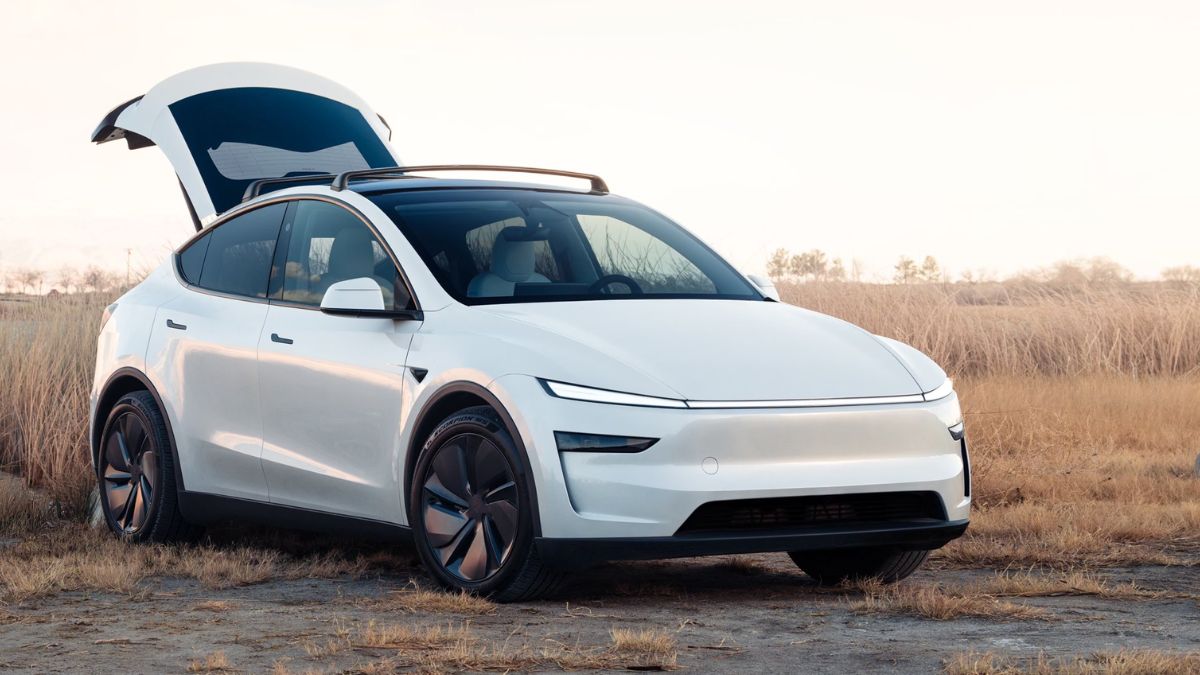Tesla in India: Game-changer or just another luxury EV brand?
 The updated Tesla Model Y (Juniper), which is expected to get an India release | X/Tesla
The updated Tesla Model Y (Juniper), which is expected to get an India release | X/Tesla
Tesla is likely to launch in India in the second half of 2025, with showrooms planned for major cities like Mumbai and Delhi. Ahead of the launch, the American car manufacturer has begun testing the Model Y Juniper on Indian roads—the first car expected to be released in the country.
Although the exact date of the launch has yet to be confirmed, reports suggest that Tesla could debut in India as early as this month, July 2025, following a string of Elon’s infamous Twitter teasers and political back-and-forth.
However, there are several up-and-coming electric vehicle models in India from reputed brands like Tata, Mahindra, MG, Citroën and even the Chinese company BYD. It is worth checking out how Tesla stacks up against them.
Tesla was initially teased to debut in India as early as 2017; however, various challenges arose, including the government’s refusal to reduce import duties for the company.
India has one of the largest import duties globally on imported cars, and Tesla customers would have to pay nearly double the price of the automobile to get it inside the country.
However, since then, the electric car market in India has risen exponentially, with a 19.4 per cent month-over-month and 17.1 per cent year-over-year increase in January 2025.
Car companies are releasing various electric models in the country, increasing competition for the company. However, a Tesla does give many benefits that are not available to other EVs in the market:
Advanced autopilot system: Years ahead in development, but let’s be real—Indian city roads are chaos. It might work on highways if regulators allow it.
Supercharging network: Tesla chargers are ridiculously fast, although setting up the infrastructure in India has its own set of challenges.
Battery range: Tesla’s offerings provide a range of 400-500km per charge, which is solid.
Minimalistic tech-heavy interiors: A large touchscreen, almost no buttons (which some might argue is a con rather than a pro) and a futuristic feel.
Built-in safety: Tesla vehicles are among the safest in the world. Their structure and software features (like collision warnings and auto emergency braking) could be lifesavers.
Insane performance: Even the entry-level Tesla EVs pack a serious punch—the Model 3 hits 0–100km/h in less than 6 seconds.
Here’s the catch, though: Teslas aren’t cheap. Even if made locally, the base models would probably start at around ₹35-45 lakh, with more expensive models possibly exceeding ₹1 crore.
And Tesla’s focused more on selling the cars here rather than making them, so expect steep import duties to be added as well, increasing the price.
This makes the target consumers of Tesla’s differ from those of already existing companies like Tata, Mahindra, or Citroën, which tend to focus on mid-range affordable vehicles which provide good value for money.
Instead, Tesla’s target consumers will primarily be savvy, status-conscious, upper-middle-class to affluent consumers who wouldn’t mind paying a premium for the cutting-edge performance, futuristic design, and software-first driving experiences.
While Tesla won’t directly compete with affordable EVs from brands like Tata, Mahindra, or Citroën, its entry will still influence the broader EV market, from infrastructure development to consumer expectations.
Tesla’s real rivals in India will be luxury EV brands like BMW, Audi, and Jaguar, but its presence could push the entire segment forward.
In this market, Tesla has got an edge—they make their EVs from scratch, as opposed to various other companies which turn already existing ICE vehicles electric. Everything from the software to the chassis is tuned for an electric vehicle.
Tesla’s arrival in India likely won’t create a big disruption in the market, but it’s going to make a statement. With higher starting prices, it won’t be a mass market hit like the Tata Nexon EV or the Mahindra XUV400, but that’s not the goal.
Instead, the US carmaker’s tech-driven approach, strong brand identity, and high-performance models are expected to influence consumer expectations and push established automakers to accelerate innovation. It would face challenges, sure—from India’s wild traffic to infrastructure hurdles—but make no mistake: India’s EV scene is heating up fast, and Tesla’s entry will only make it spicier.
Business